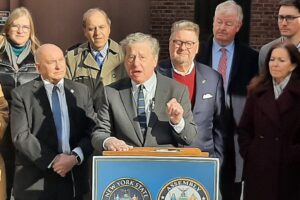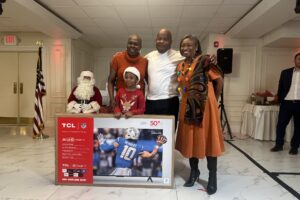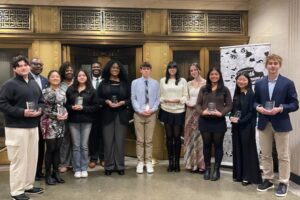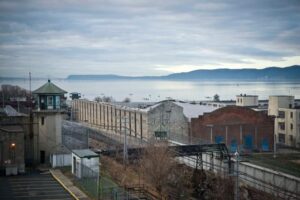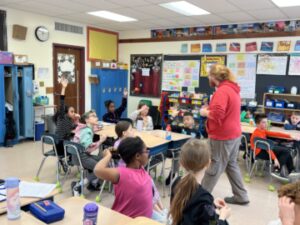 Last month Washington Irving Middle School students learned that we need to nurture nature to have a nurturing future. Educators from the Greenburgh Nature Center moderated lively discussions and interactive fun sessions all about keeping ourselves and our earth healthy and how we can all be good student stewards to ensure that we leave resources for future generations.
Last month Washington Irving Middle School students learned that we need to nurture nature to have a nurturing future. Educators from the Greenburgh Nature Center moderated lively discussions and interactive fun sessions all about keeping ourselves and our earth healthy and how we can all be good student stewards to ensure that we leave resources for future generations.
The programs are offered free of charge, thanks to the support of Con Edison, and are created by the naturalist and sustainability educators of the Greenburgh Nature Center. The third, fourth, and fifth-grade students participated in programming that meets their respective academic requirements while providing a unique window into essential topics about the environment.
The fourth-graders learned about their carbon footprint and how their small part contributes to the world’s grand scale of climate change. They also heard that with some slight changes, the students, their families, the Sleepy Hollow and Tarrytown communities, and our country can help reduce the effects of climate change through things like alternative energies and electric vehicles.
The third and fifth-grade students dove into the ins and outs of what a food system is, what kinds of energy exist in it, and how it all flows to get from farm to table.
Noah, one of the Greenburgh sustainability educators, praised Mr. White’s third grade class complimenting their “sixth grade brains” when the discussion turned to map out how we can solve and innovate to help save the Bees. The discussion on food waste surprised the students. The entire class shouted “why?” when Noah shared that 40% of all food gets thrown away in the United States, yet there is still food insecurity. Third grader Paul said, “I never knew it takes 15 steps for food to get from the farm to the store.”
“Lively sessions like these with the Greenburgh Nature Center bring to life what we are learning in our science units of study,” said third-grade teacher and team leader Carol-Ann Woods. “Engaging the students in an exciting way makes learning about the environment fun.”



